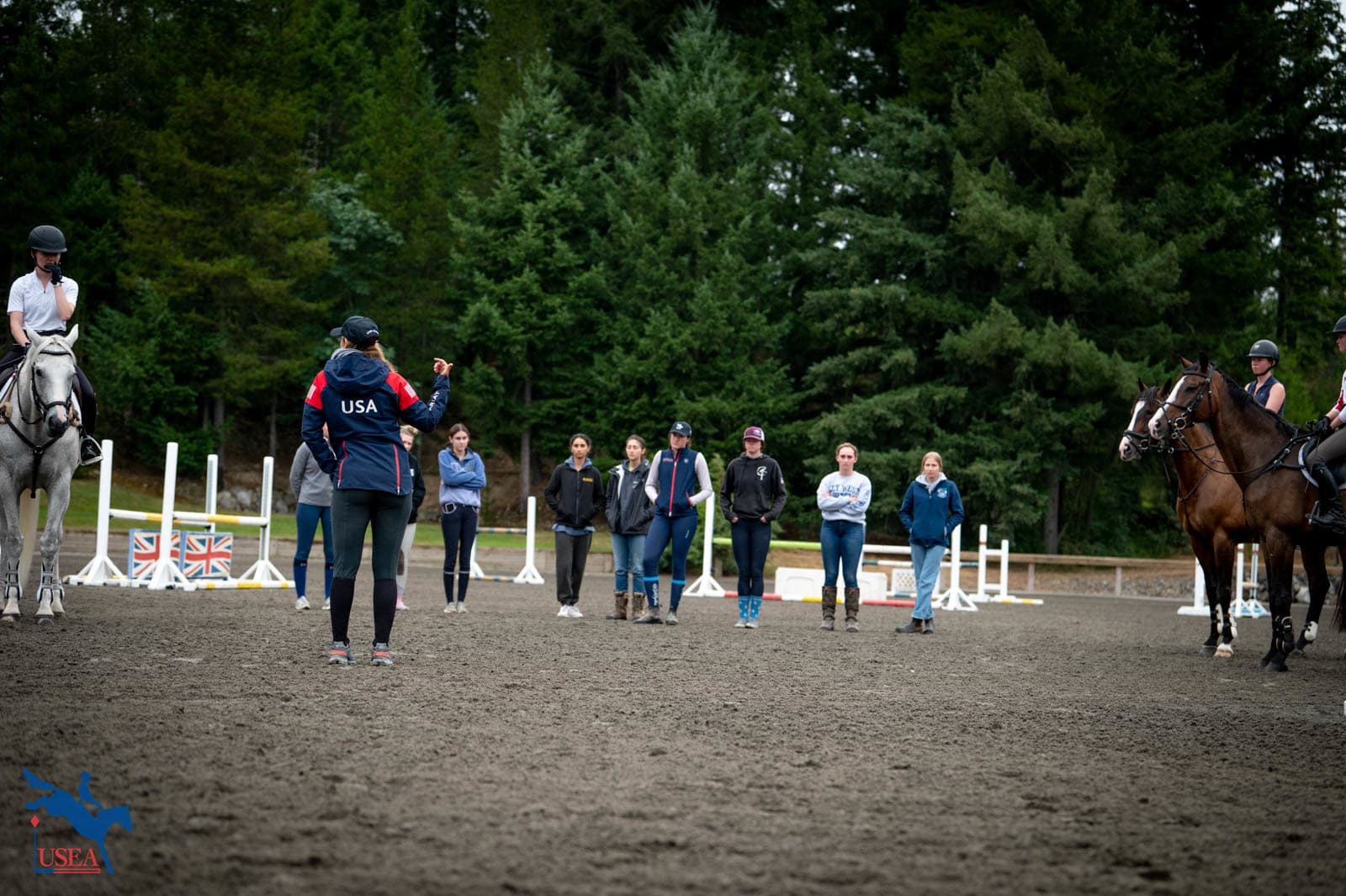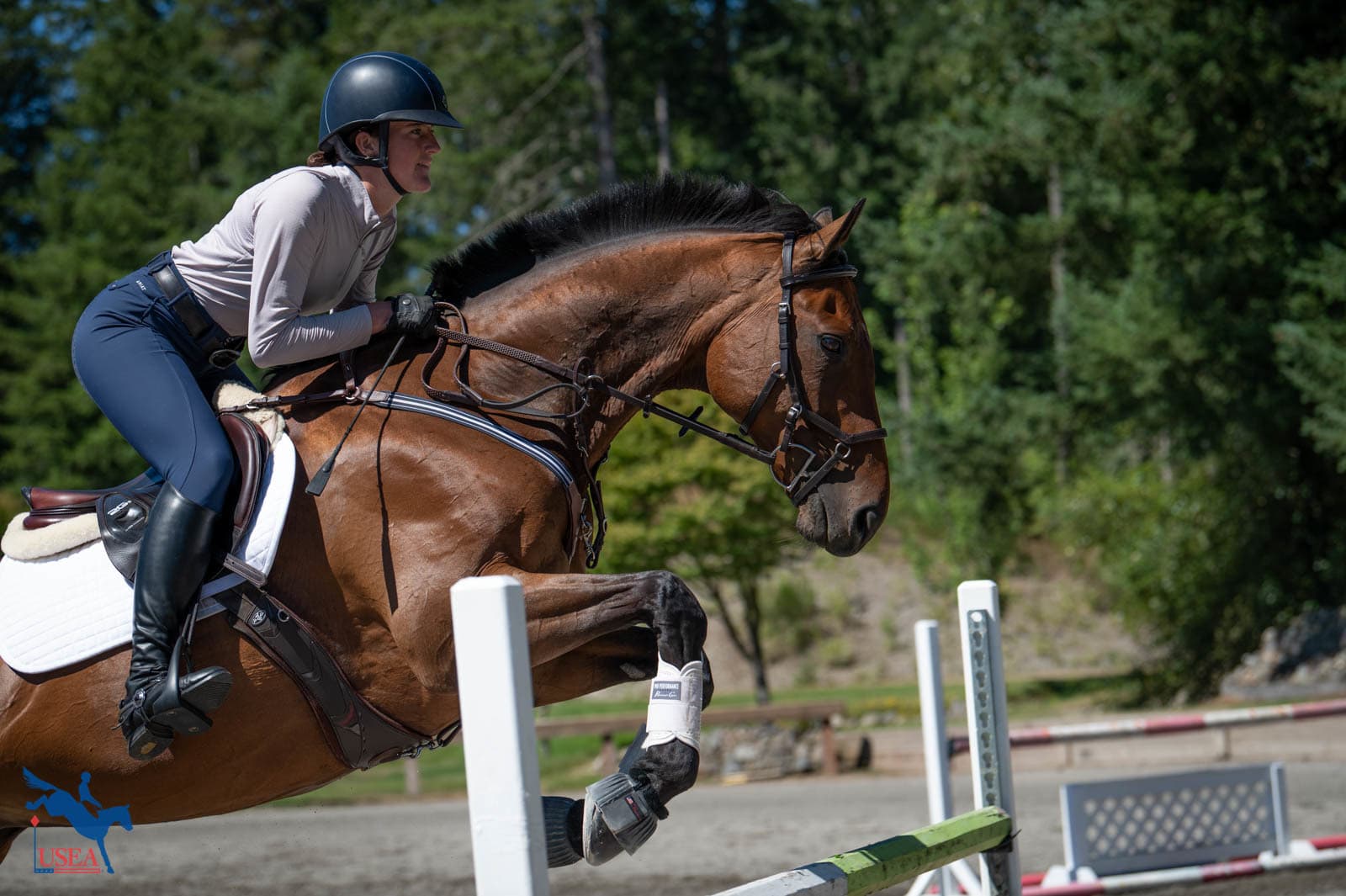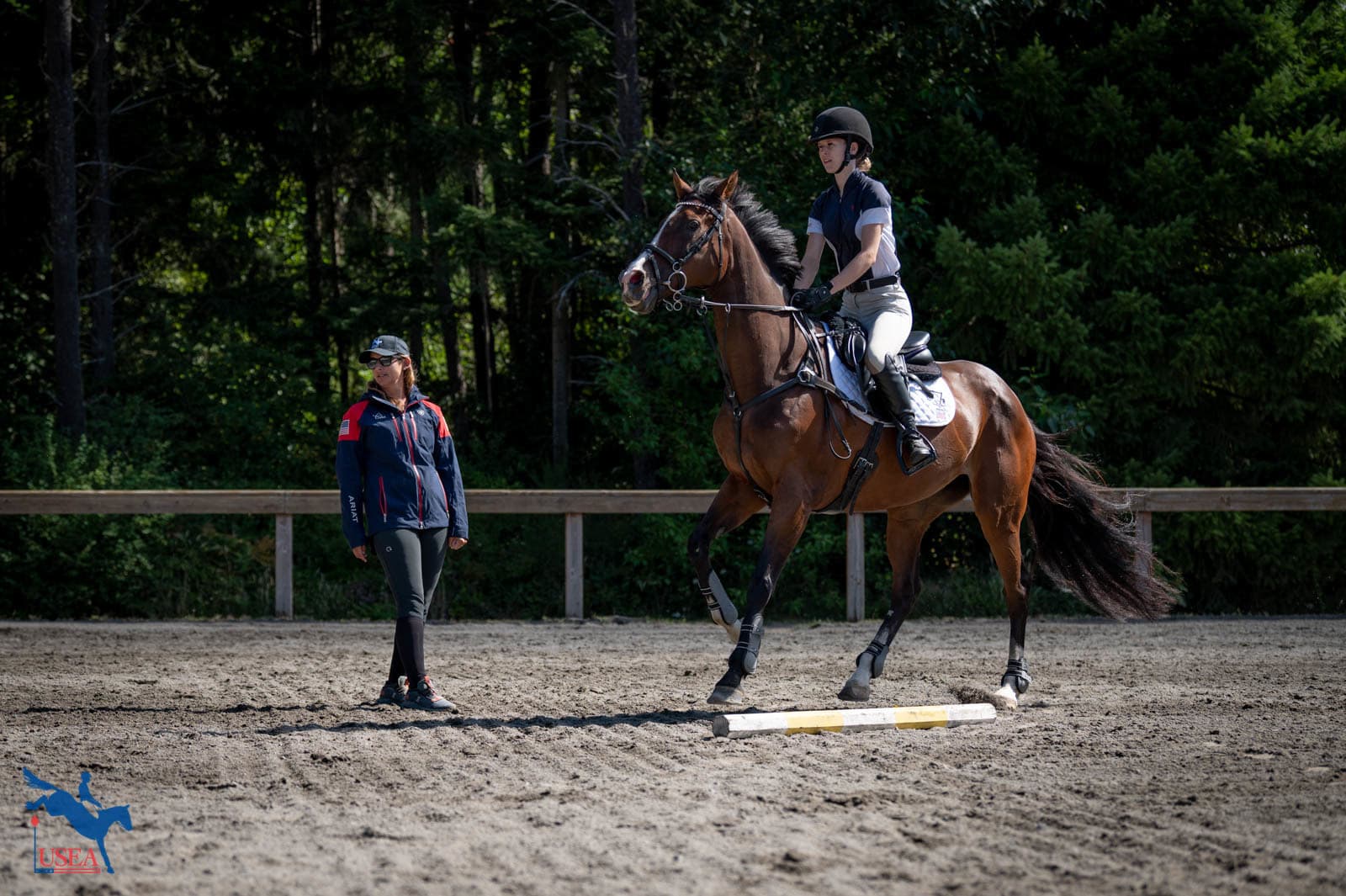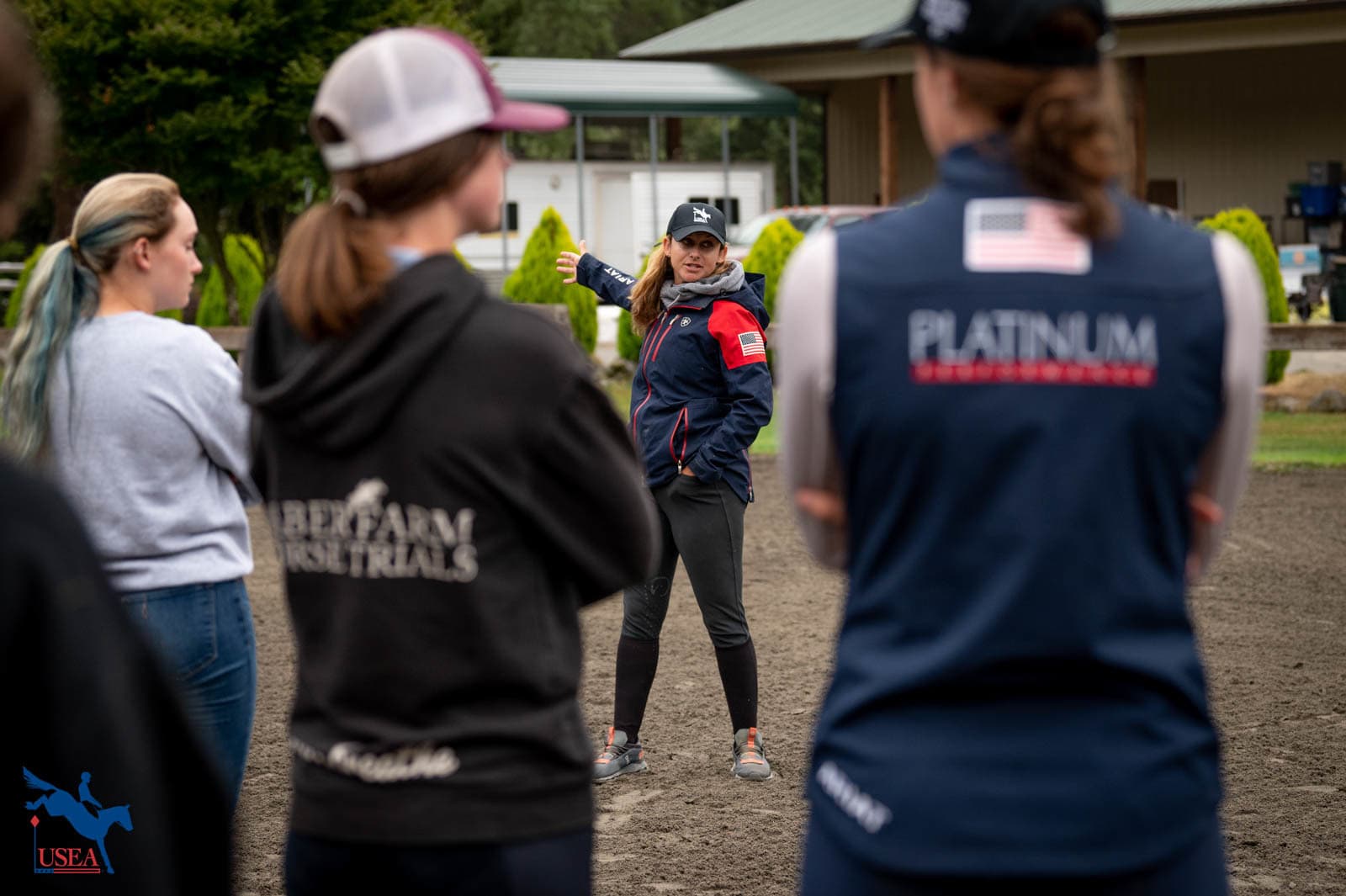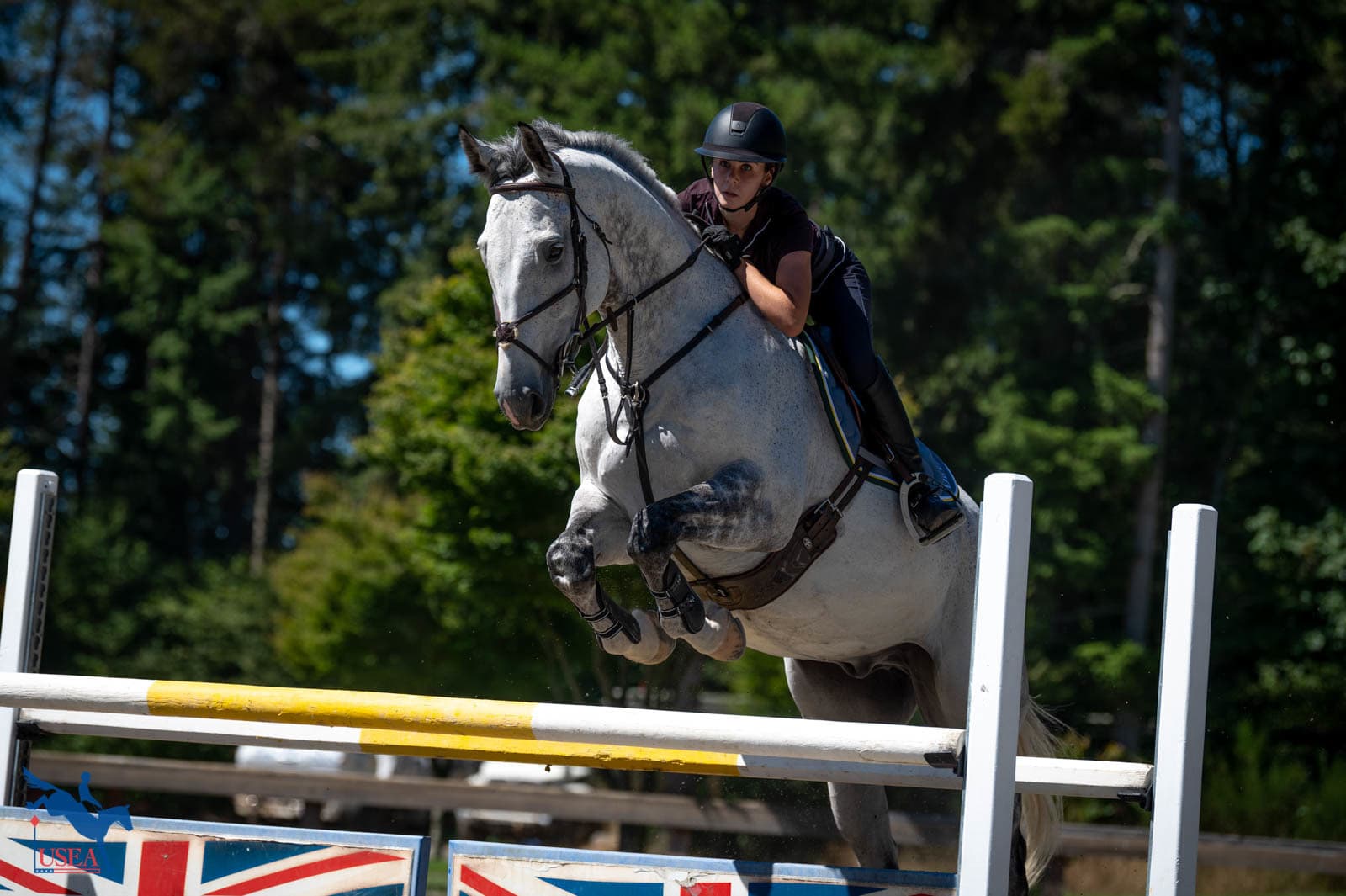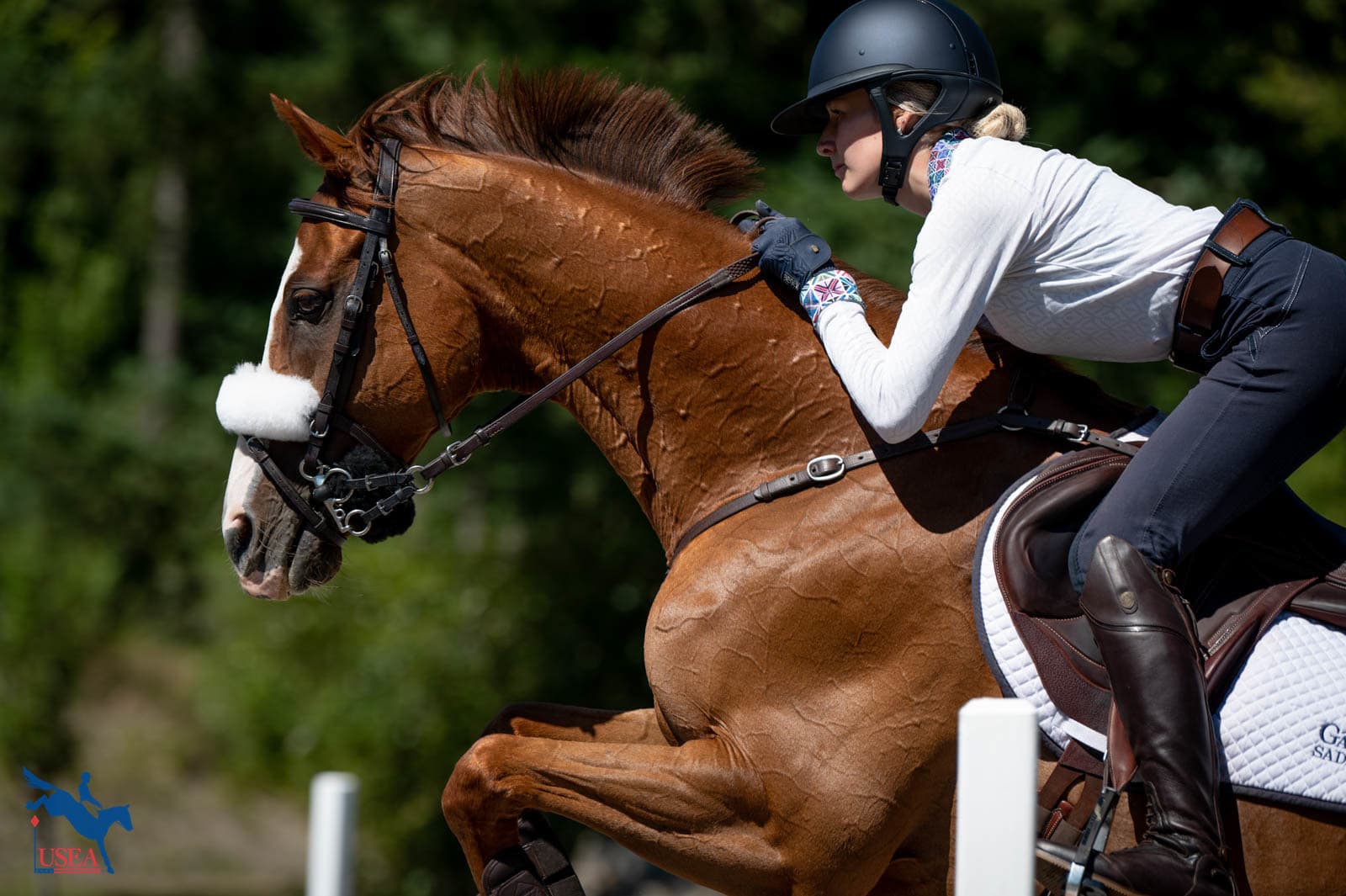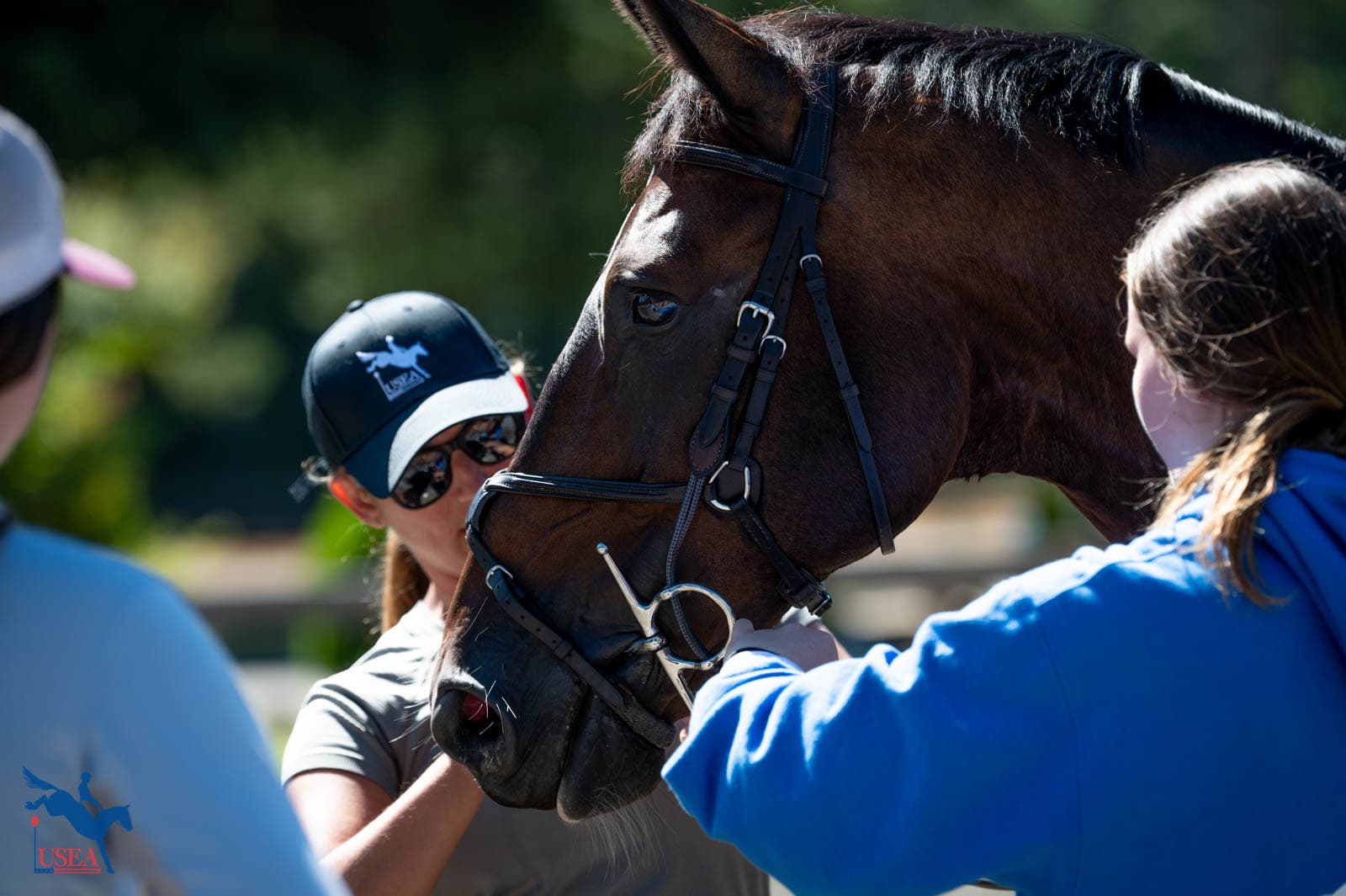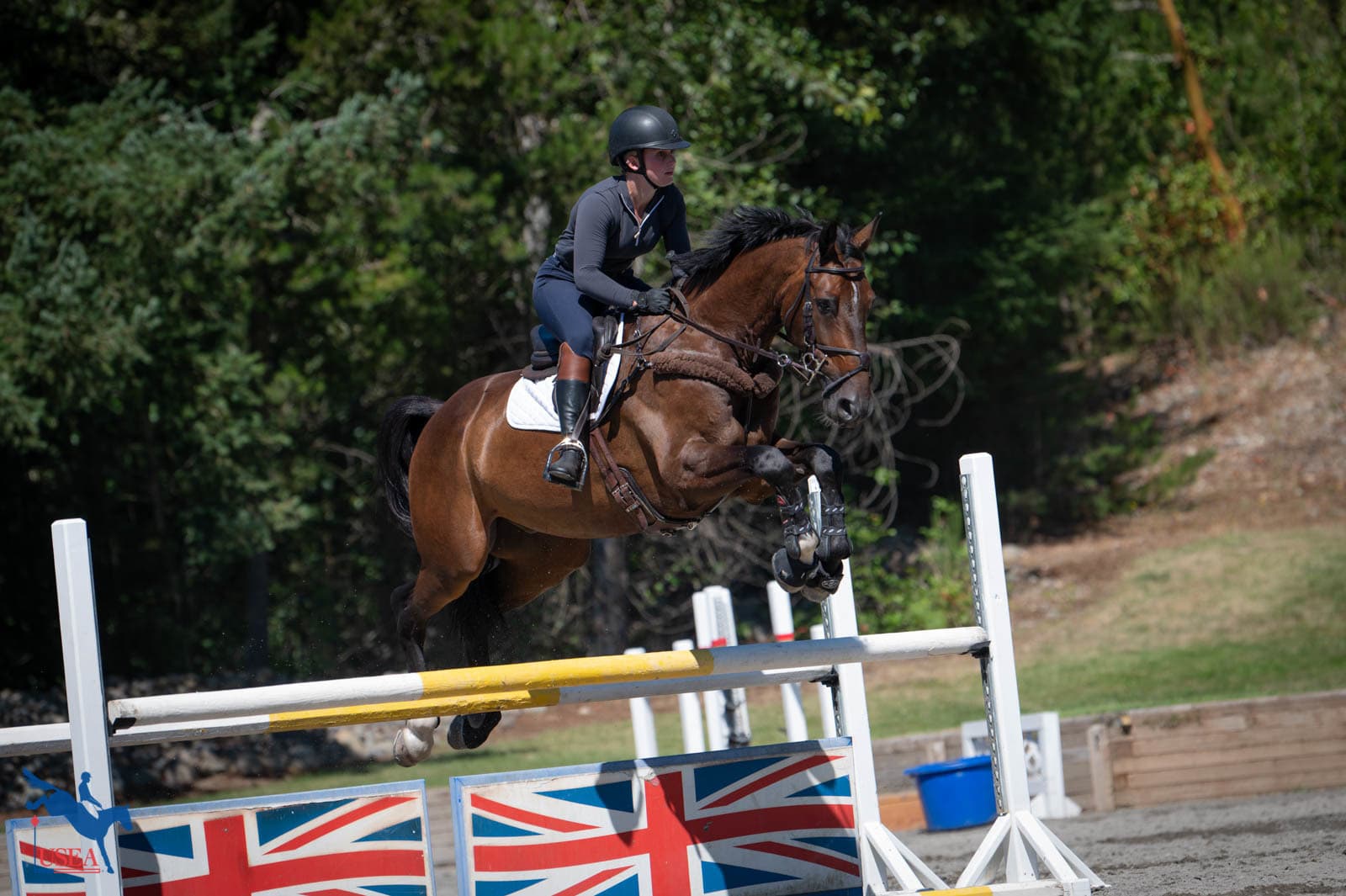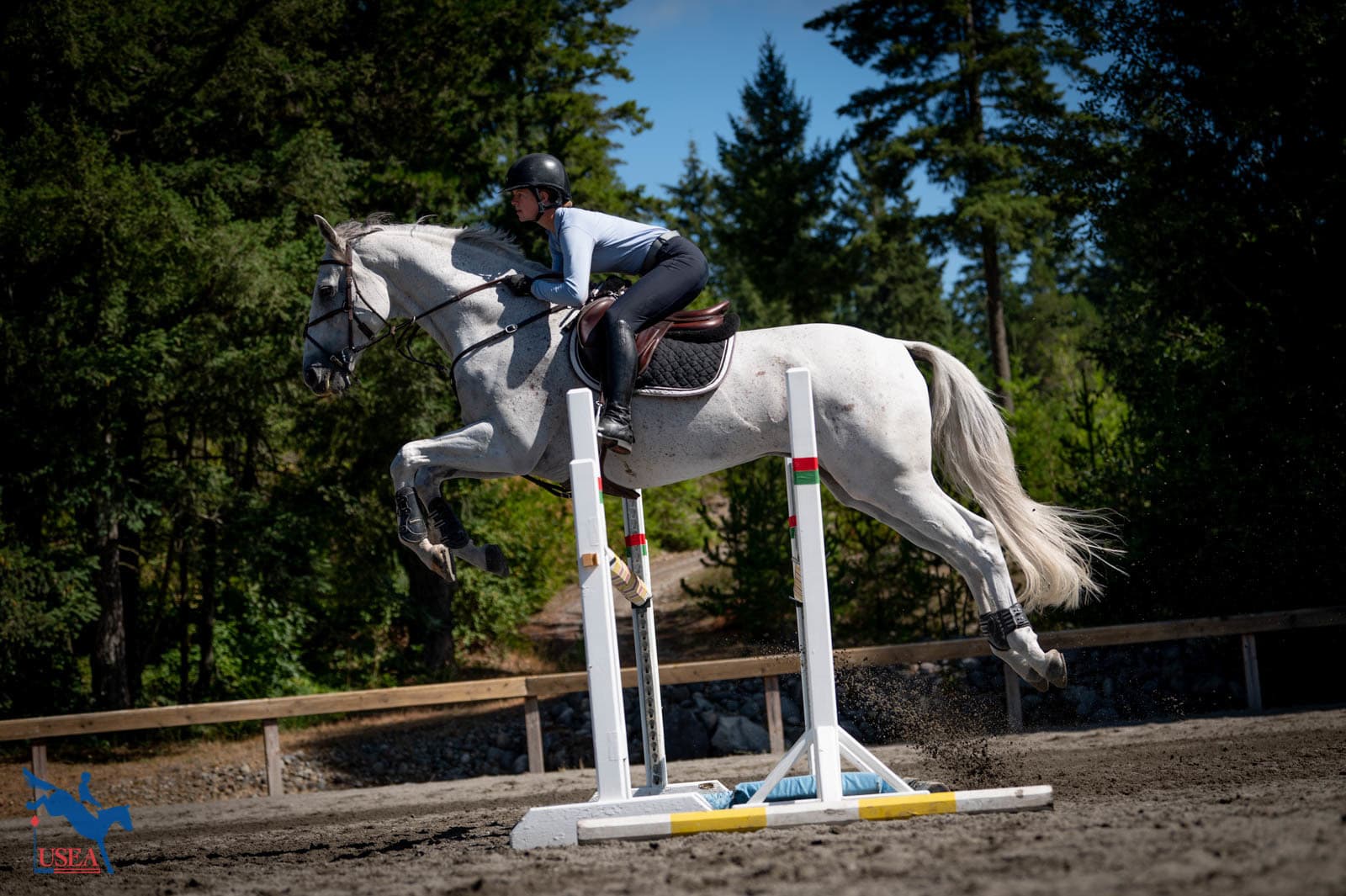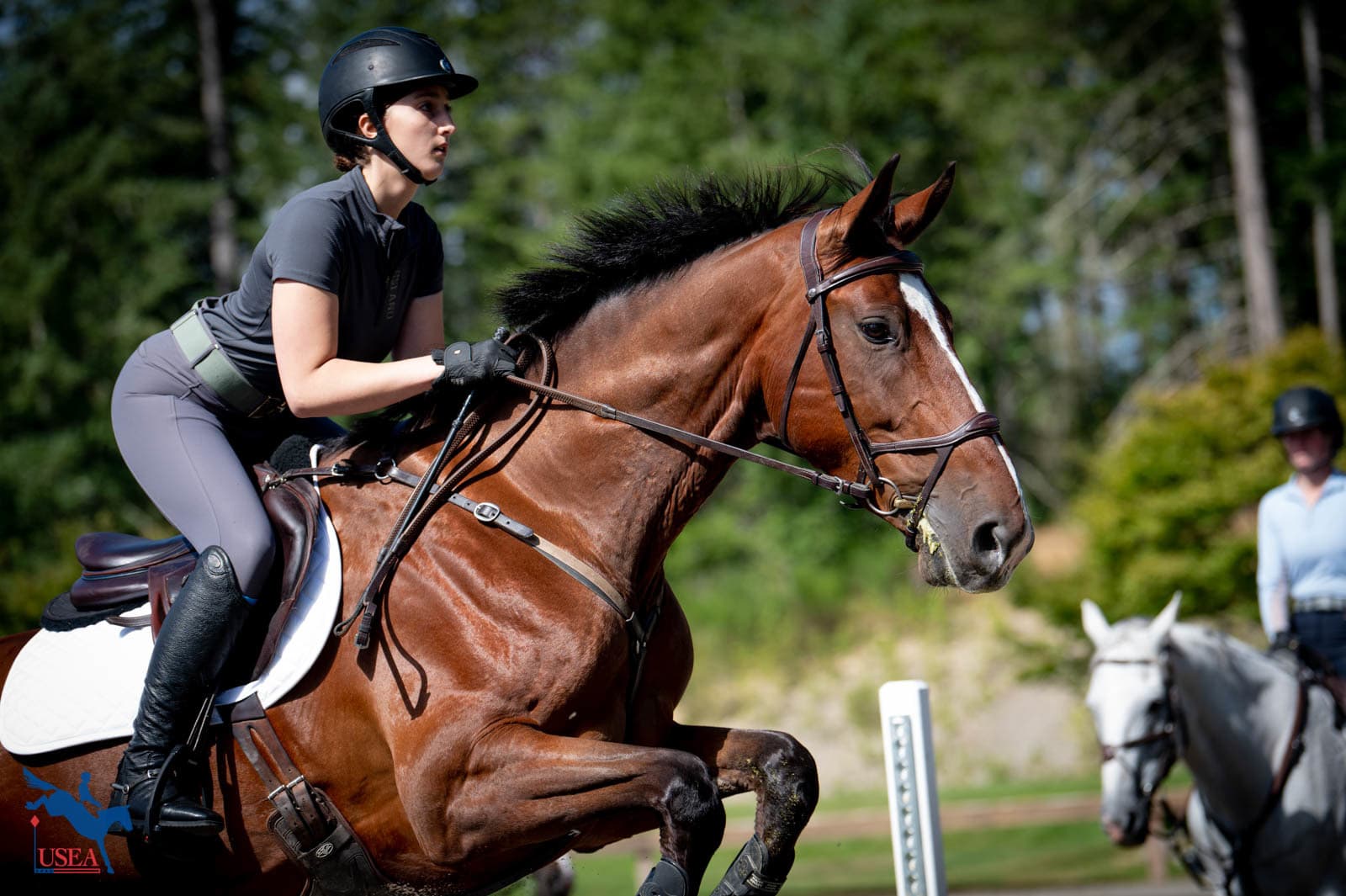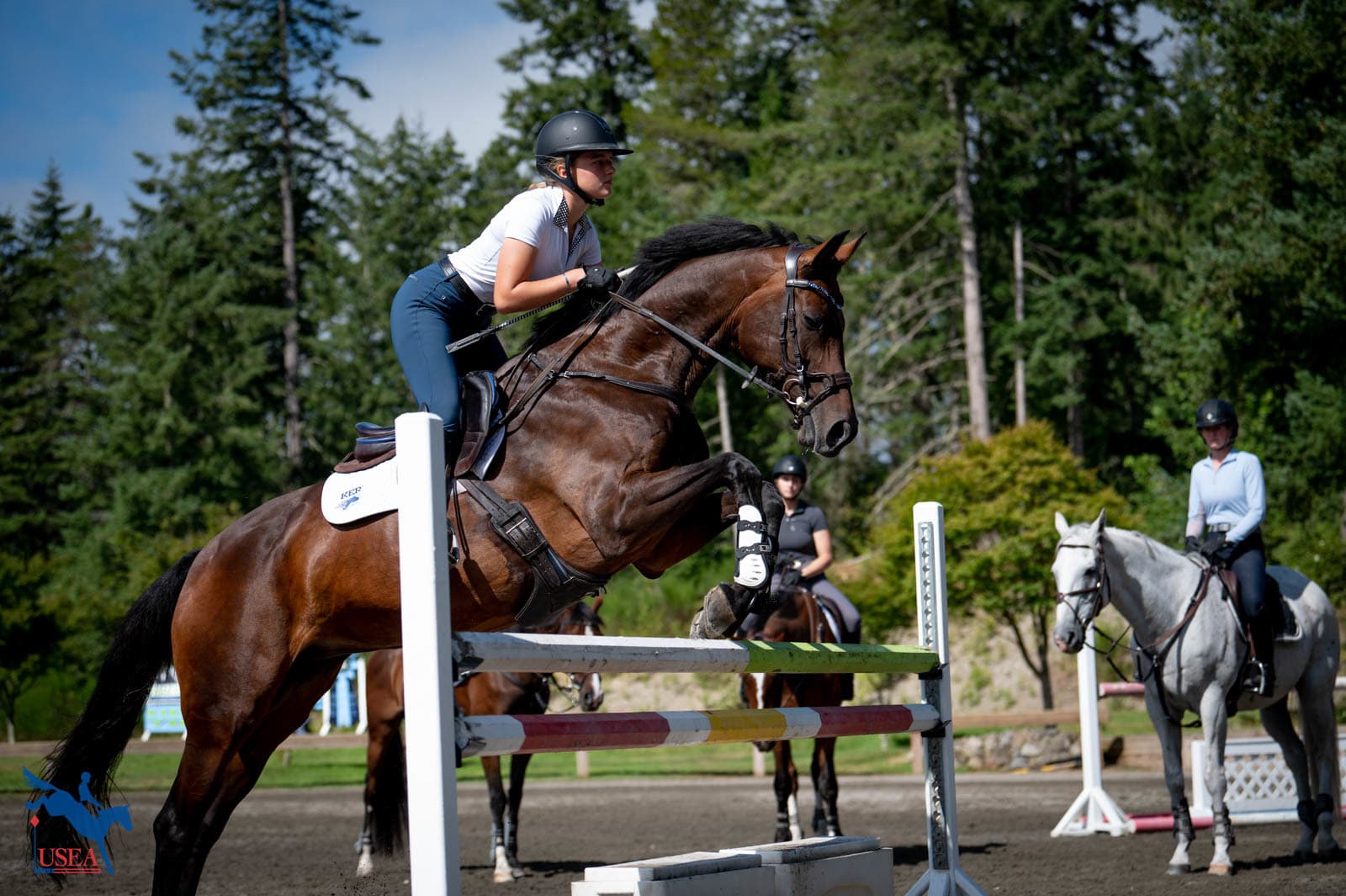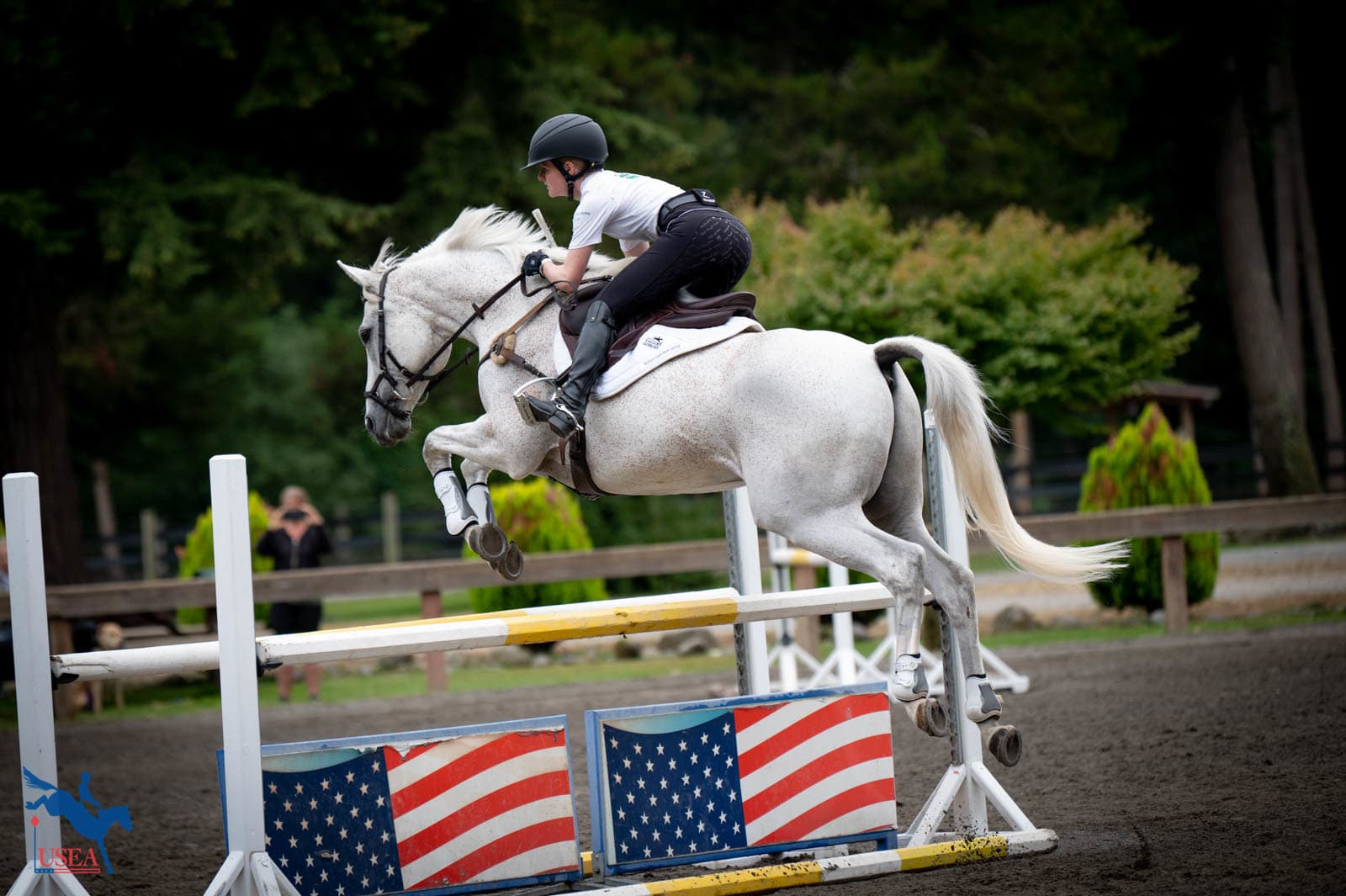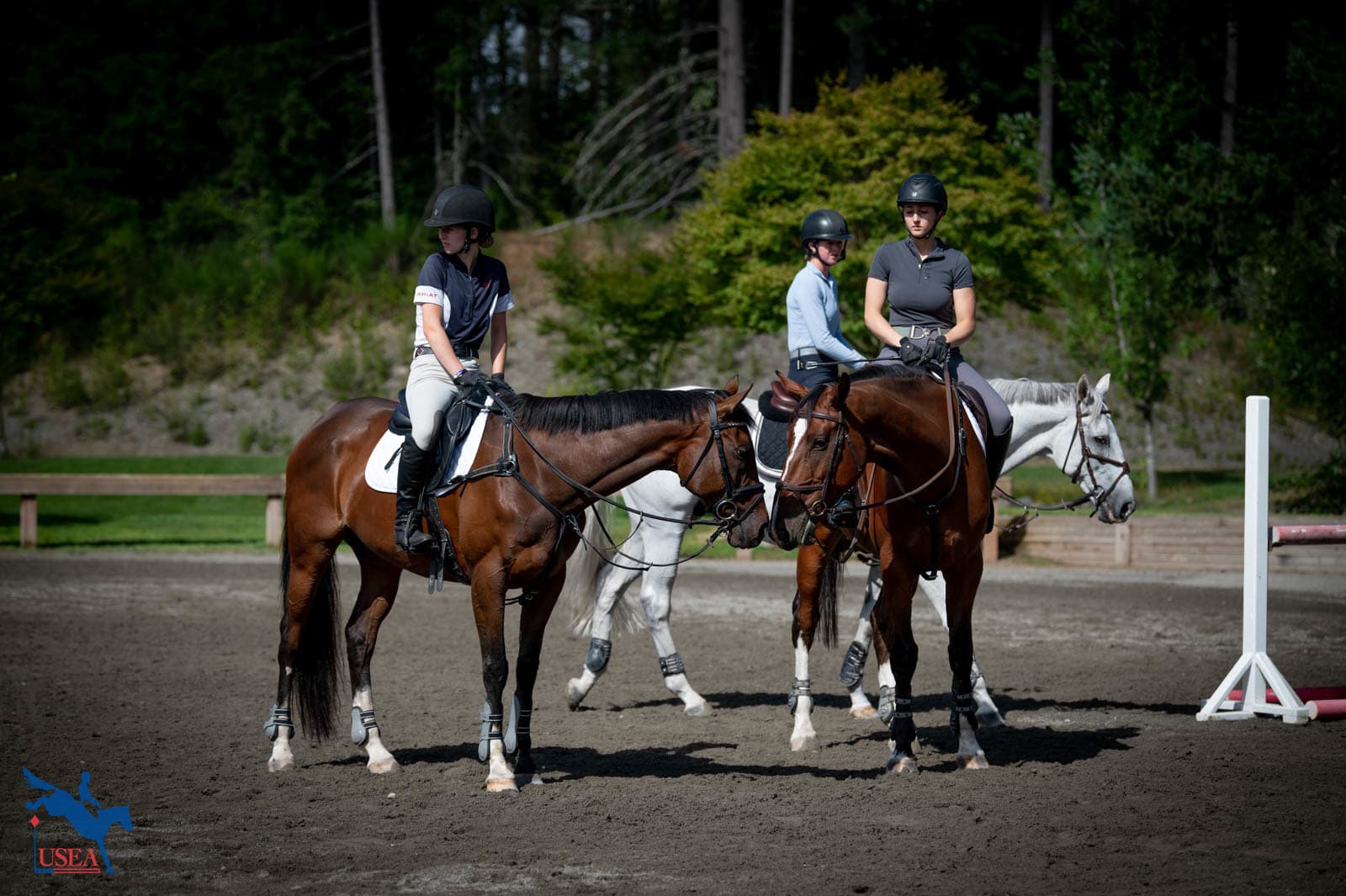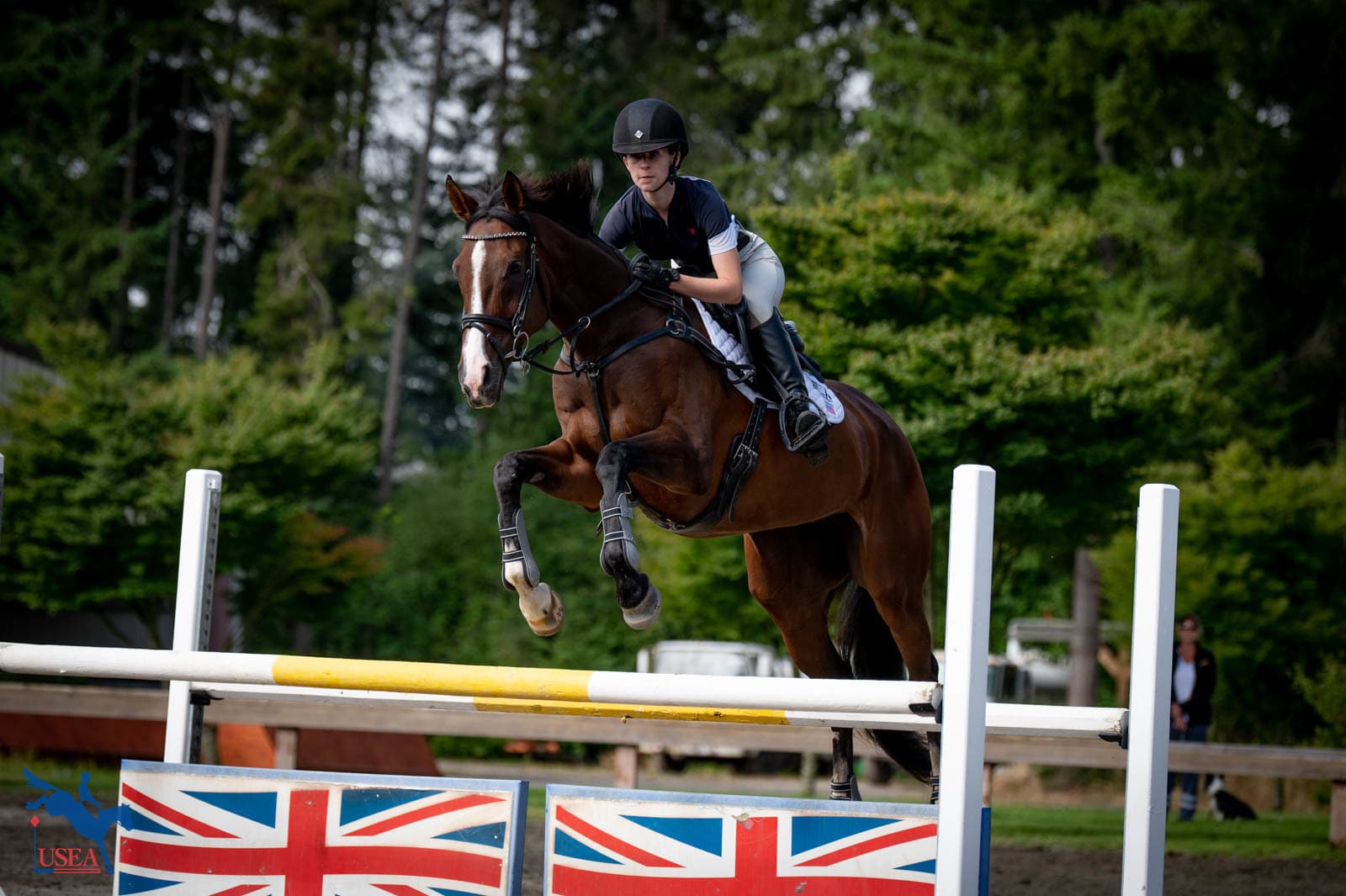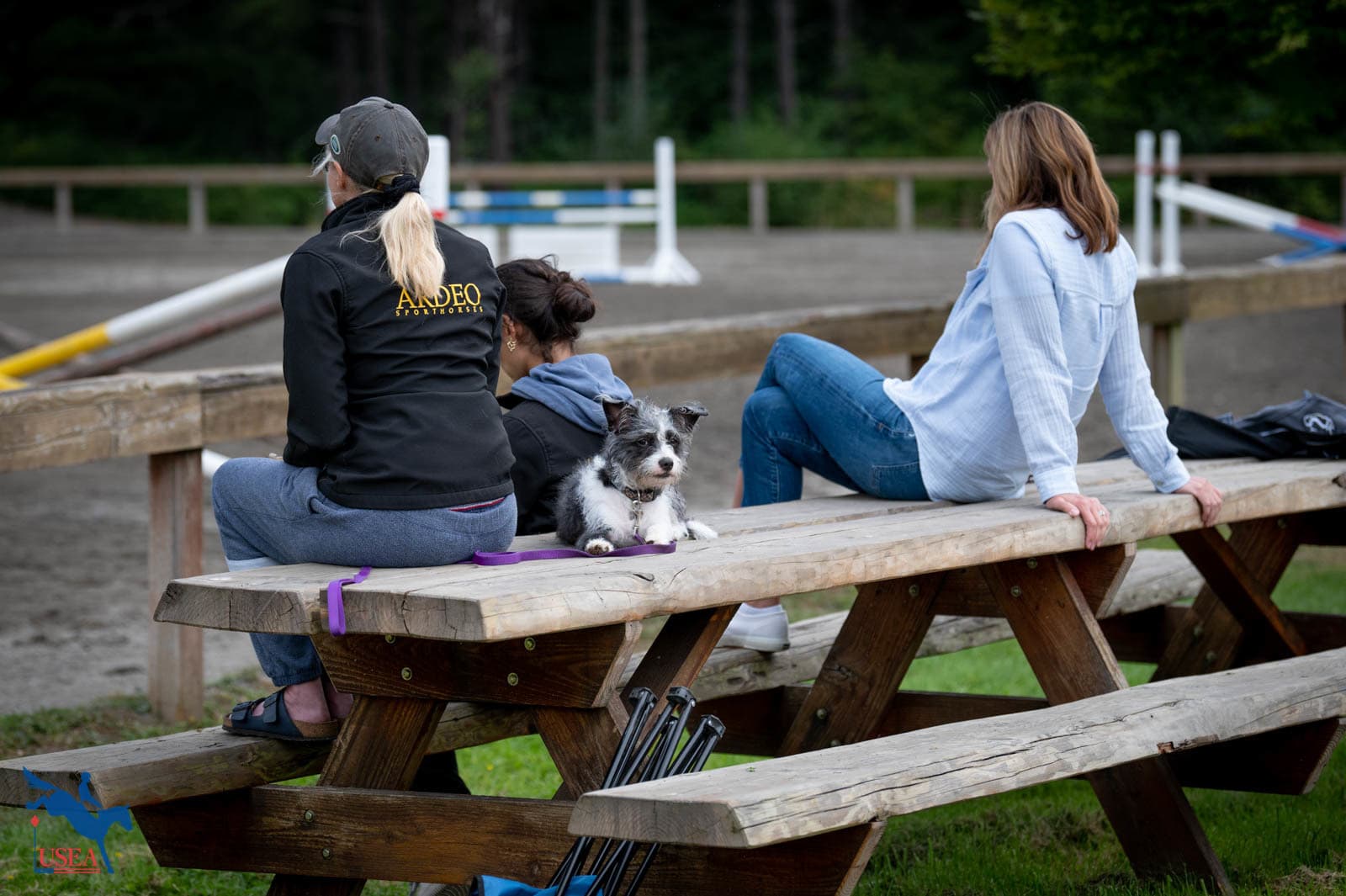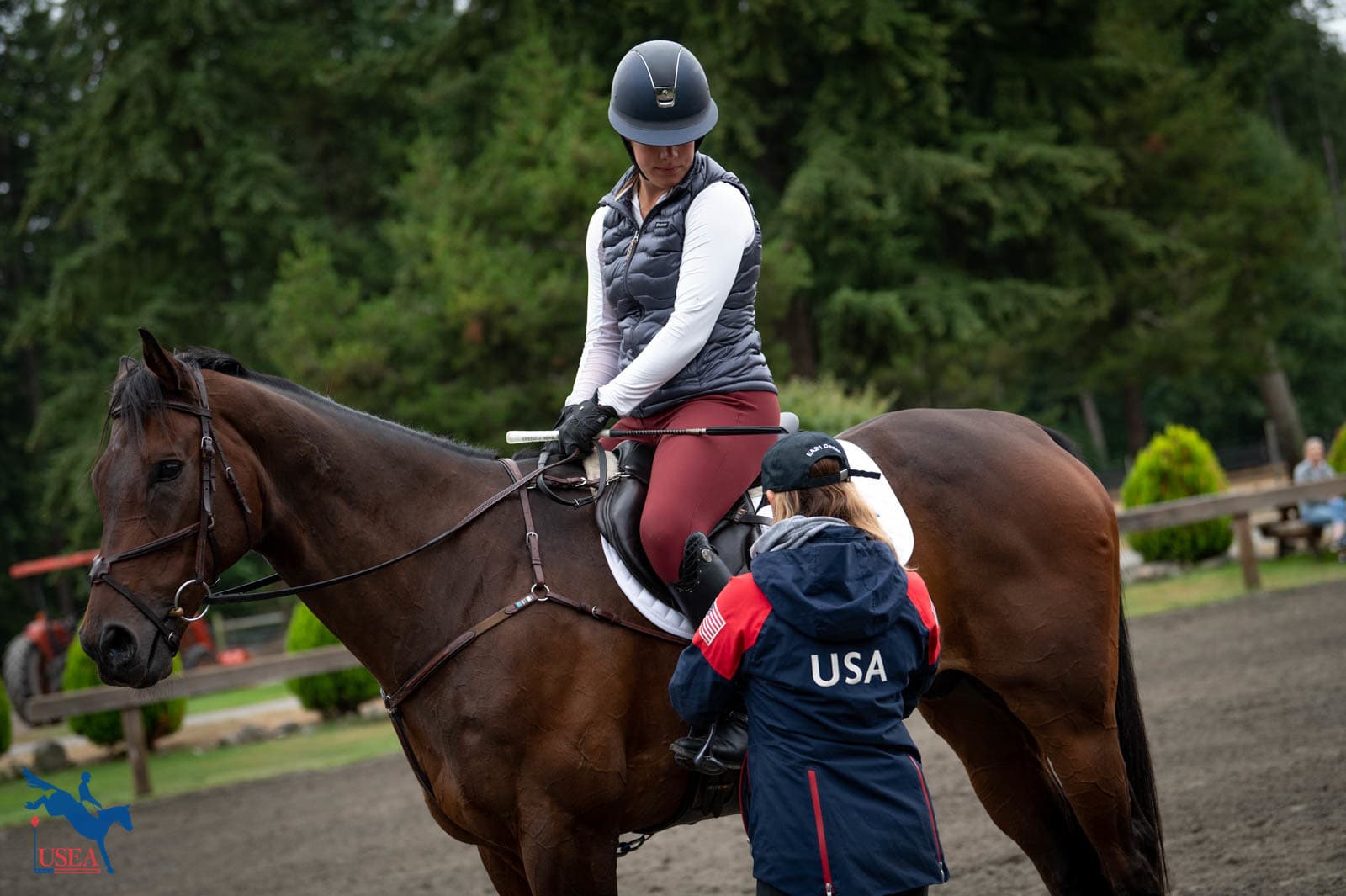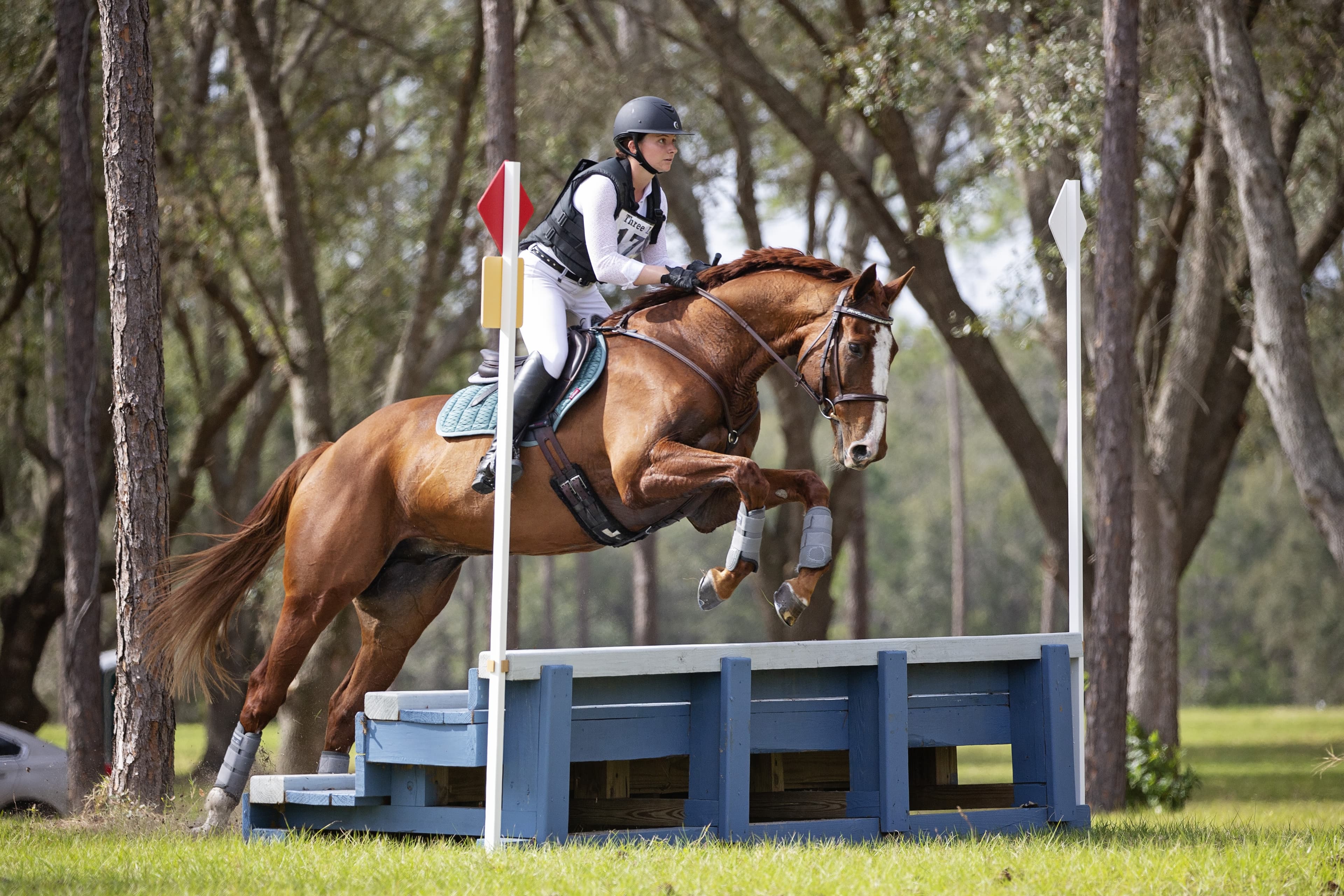Cadence, Canter, and Candidness Conquer Day Two of Aspen Farms EA21 Regional Clinic

Riders returned to Aspen Farms in Yelm, Washington for the final day of the USEA Emerging Athlete (EA21) Regional Clinic with USEA Instructor's Certification Program (ICP) Level IV Certified Instructors Rebecca Brown on Tuesday. Coming off of a solid first day focusing primarily on proper flatwork and dressage basics, the twelve young riders took to the outdoor arena for the show jumping portion of the clinic.
Brown, who trained under the legendary show jumper, Joe Fargis right out of college, shed some much needed light on what she called “the most difficult portion” of three day eventing.
“Show jumping is often the most lacking portion. Just keeping the rails up without a plan is not quite good enough. Understanding and being familiar with the history of the American showjumping system is a huge help in being successful in this sport,” stated Brown.
The Advanced level eventer went on to explain that as opposed to the traditional European style of riding which features a deep and heavy seat and hand, the American forward style of riding features a lighter seat. She continued to explain the root of that tradition in the U.S. which dates back to the1960s, 70s, and 80s when the country was developing a solid foundation for the sport and a successful team the riders were primarily competing on Thoroughbreds. Emulating this style works so well for this sport because most people are still eventing with Thoroughbreds or those with Thoroughbred blood and even those that are not can really benefit from what this style of seat brings out in their horse.
There were two main seat positions that the eventers focused on in their lesson:
- Two-point
- Light seat or three-point
While all of the riders were advanced in their application of the two-point, with a steady lower leg position and centrally balanced seat, they all received individual tweaks to “finesse” their technique to better situate themselves on their mounts in an effort to achieve a more quality jump.
Throughout the three sessions of four riders, Brown adjusted bits, tweaked lower leg positions, corrected closed upper body positions, and heavily emphasized the “square turn” to make sure each rider was approaching the fence straight and balanced - the hallmark of a successful show jumper.
Brown went on to explain that a “great” round in the arena should be boring, meaning that the cadence and rhythm should be so smooth and soothing that it all looks fluid and the same to the point of boring the audience. In attempting to achieve this higher standard of canter and consistency, Brown encouraged the riders to constantly look for that consistent canter rather than for the distance to the jump.
“When you are constantly searching for a distance you are either hitting the gas or slamming on the brake, speeding up or slowing down, and you lose your consistent and steady canter making the jumps harder to find as they are approaching at differing speeds and distances,” Brown noted. She continued stating that instead of honing “your eye” riders should hone their skills with the German Training Scale, which was the primary focus of day one of the clinic.
After the final group concluded their jumping session, the first of the two West Coast EA21 Regional Clinics came to a close as Brown had to jet off to the final EA21 Regional Clinic which is being held at Twin Rivers Ranch in Paso Robles, CaliforniaWednesday, August 17 and Thursday, August 18. Riders reflected on their time with Brown stating it was an incredible experience and they were refreshed to hear a differing perspective and training style from what they usually have at home.
With some riders heading off to college, others gearing up for the upcoming 2022 USEA American Eventing Championships presented by Nutrena Feeds at Rebecca Farm in Kalispell, Montana, or planning to head south for the winter season, all showcased an extraordinary level of talent and commitment to their horse, their skills, and their future in the sport.
